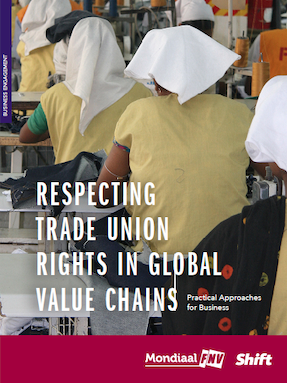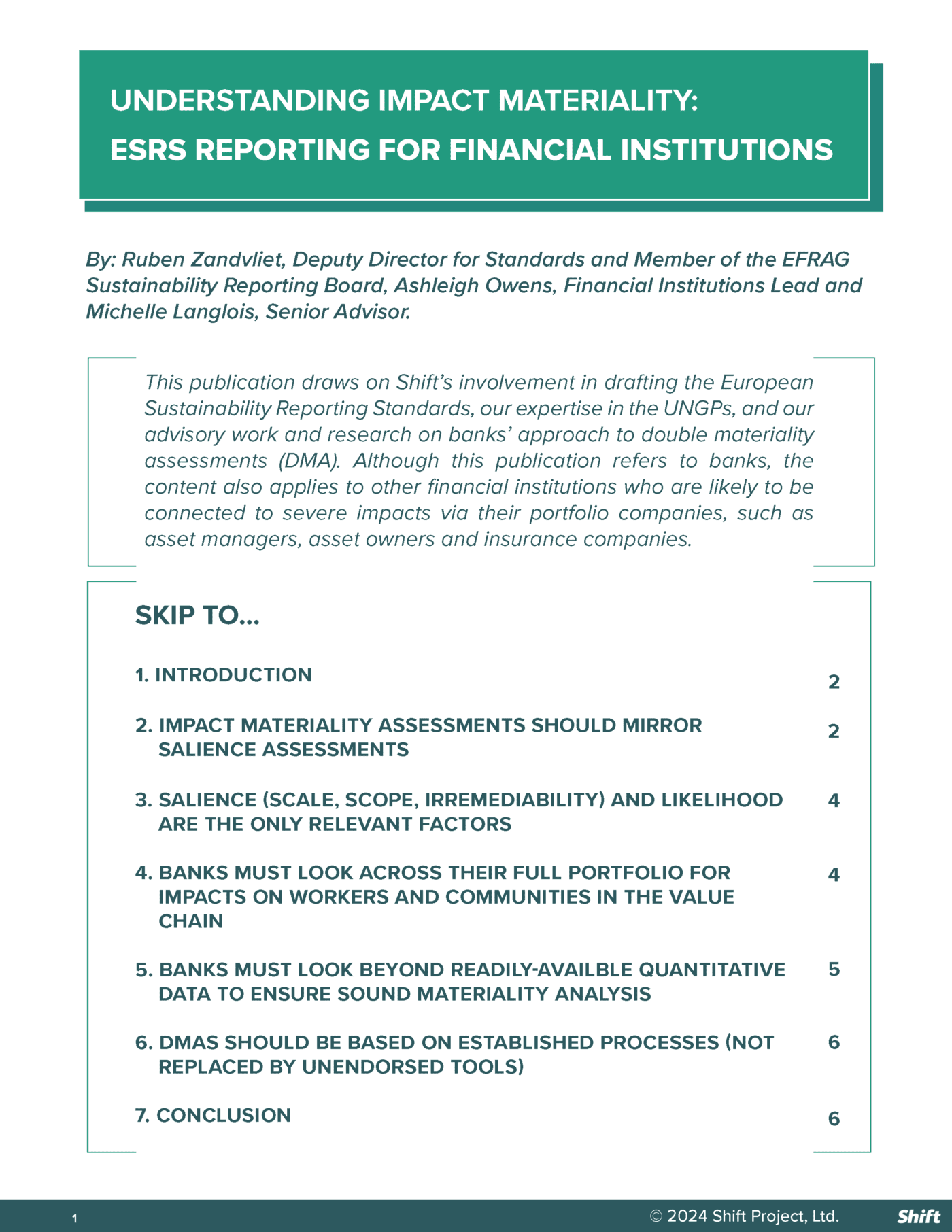Often, companies struggle to identify and implement meaningful action to address risks to trade union rights in their global value chains. This is due to a range of factors:
- External factors arise from the contexts in which global companies operate, and into which their global value chains extend. This includes relevant laws and regulations and their implementation, the social practices that shape perceptions of trade unions, and the local capacity of trade unions and business partners to claim or respect these rights in practice.
- Business models, which can create heightened risks to trade union rights if not properly managed. These include sourcing from high-risk (and lower cost) markets, extensive use of contract or temporary labor, and a company’s own purchasing practices.
- Corporate culture and business practices, which can include assumptions and attitudes towards trade unions at headquarters, and weaknesses or common pitfalls in due diligence processes.
Included in this resource is a diagnostic tool in Part 2.2 to help companies assess where and why they might face heightened risks to trade union rights.
The resource also highlights a range of practical steps companies can take depending on the risk factors that are present. Additionally, it showcases eight examples of how real companies have approached trade union rights in practice.





